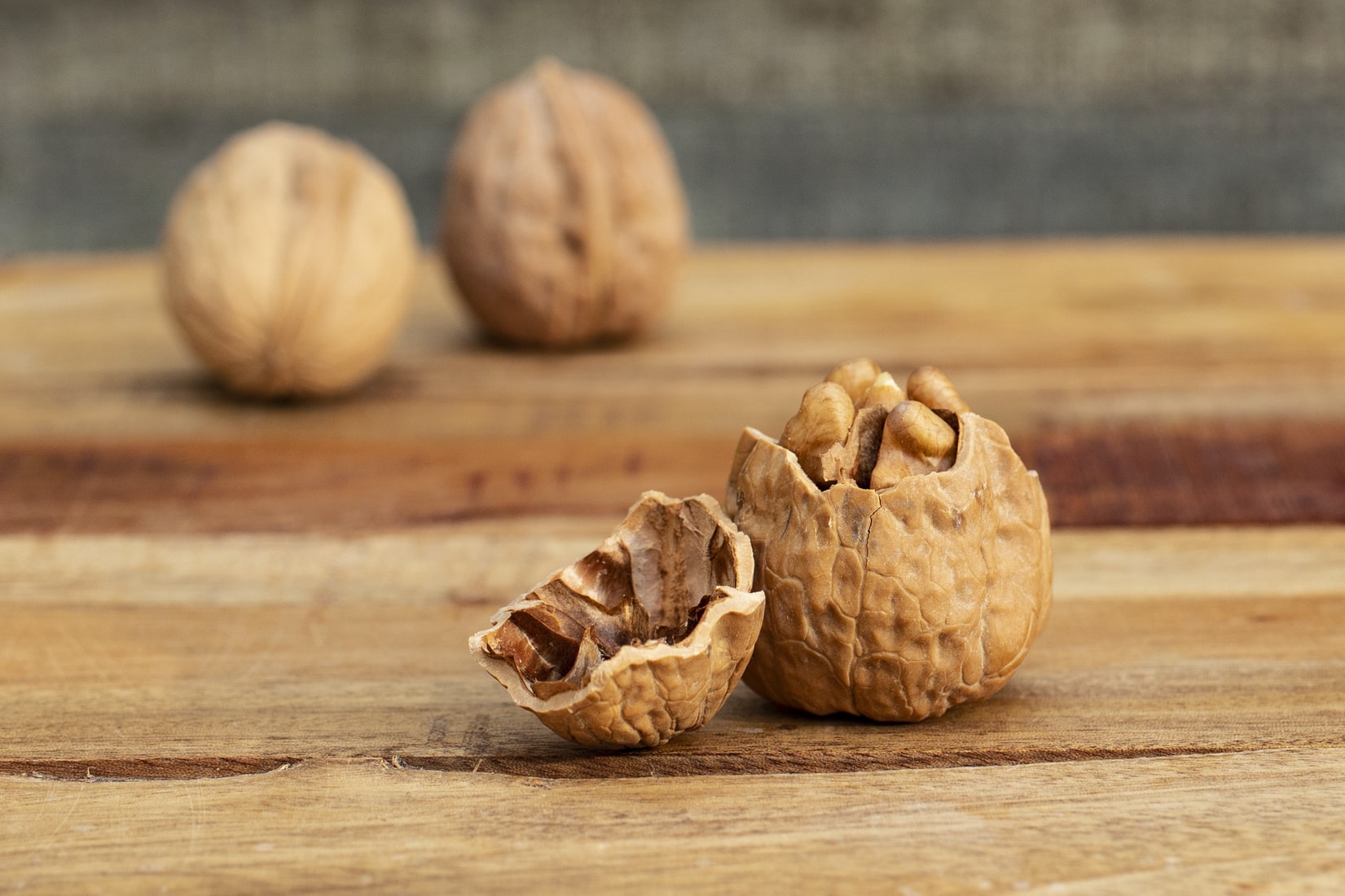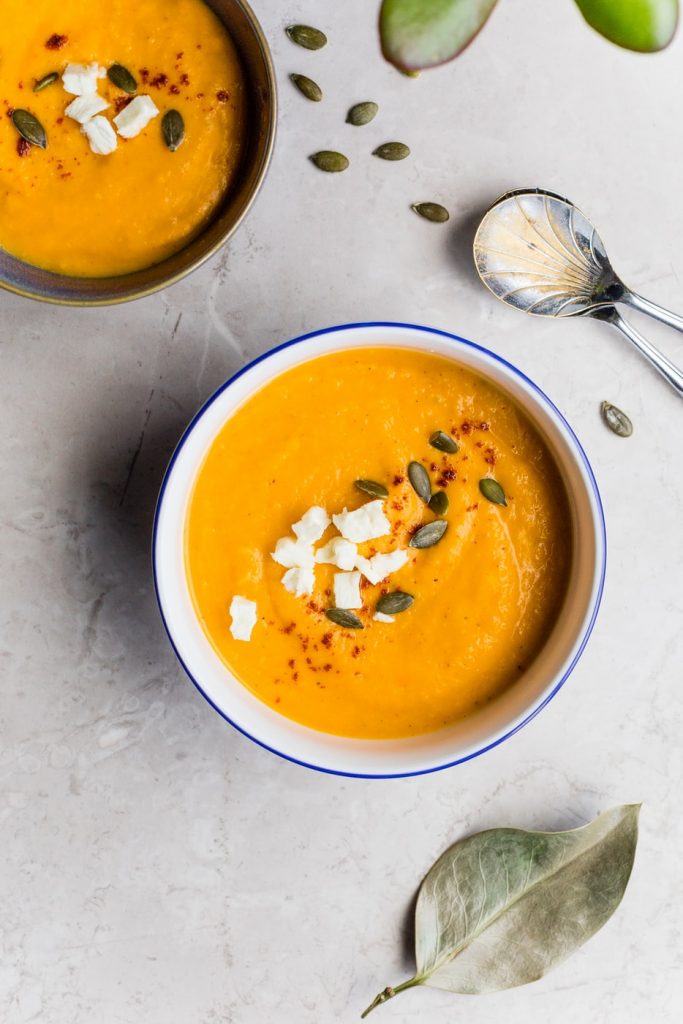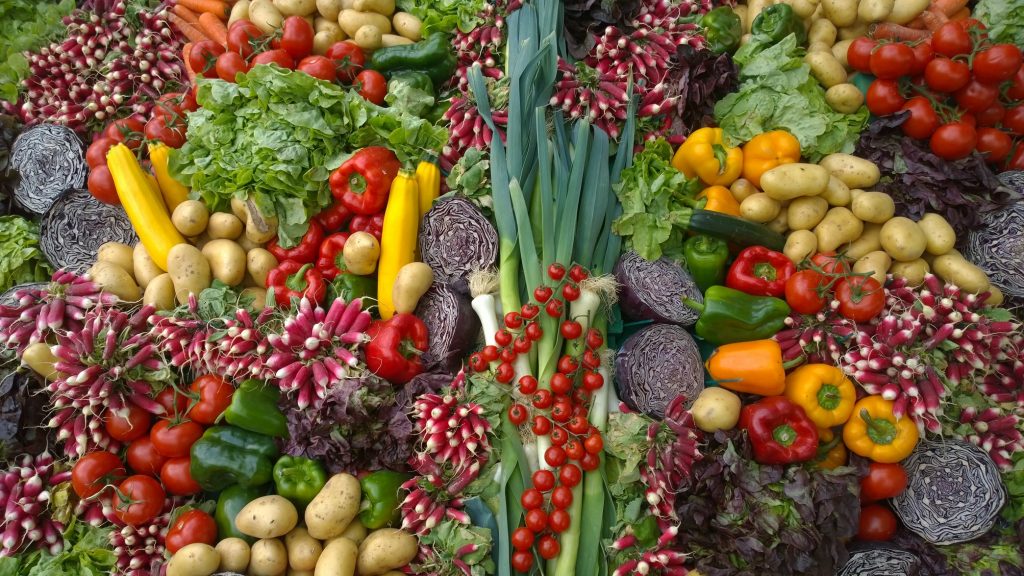Walnuts, they look like brains, but does that mean they are good for the brain?
Turns out they are! A recent review found that, long term daily intake of walnuts improved cognitive function and performance and may delay onset or slow progression of cognitive impairment (Chuahan & Chuahan, 2020). Another study also found that regular walnut consumption improved cardiovascular health, which is a risk factor for neurodegenerative diseases (Poulose, Miller & Shukitt-Hale, 2014). So what is it in walnuts that’s so beneficial?
Walnuts are a rich source of:
- Antioxidants
- Melatonin
- Folate
- Vitamin E
- Magnesium
- Phosphate
- Selenium
- Alpha-linolenic acid (a plant-based omega 3 fatty acid)
(Chuahan & Chuahan, 2020).
These nutrients together help reduce oxidative stress and free radical levels which can be high in the brain due to the fact that the brain consumes a considerable amount of oxygen, which leaves it
particularly vulnerable (Chuahan & Chuahan, 2020). The vitamin E, melatonin and omega 3 content of walnuts can help reduce levels of inflammation which has been linked to the development and progression of aging, dementia and Alzheimer’s Disease (Ros, Izquierdo-Pulido & Sala-Vila, 2018).
Enjoying 30g walnuts at least 5 times per week, which is the equivalent of ¼ cup or 12-14 halves, is beneficial to your overall health, not just brain health. Walnuts are a very versatile nut and make a tasty snack or can be paired with just about any food. Try adding walnuts to your salads, pesto, or even use with mushrooms as a meat substitute. Check out the recipe below for a Beetroot, Goat’s Cheese and Walnut Salad!
Walnuts can go rancid quickly if left in a warm environment for long periods of time. They are best stored in an airtight container in the fridge, away from strong smelling foods as they can absorb flavours of other foods. Walnuts can also be stored in the freezer if needing to store them for longer periods of time.
Beetroot, Goat’s Cheese and Walnut Salad
Recipe from California Walnuts (www.walnuts.org)
Ingredients:
- 500g beetroot – red and goldens
- 200g rocket
- ½ cup walnuts, coarsely chopped, lightly toasted
- 30g Goat’s cheese (Chevre), soft, crumbled
- Freshly ground black pepper to taste
Dressing:
- 3 tbs extra virgin olive oil
- 2 tbs white wine vinegar
- 2 tbs fresh basil leaves, lightly packed, torn
- ¼ tsp sea salt
- ¼ tsp sugar
Method:
- To prepare the dressing, combine all dressing ingredients in a small blender or food processor, and process until smooth. Cover and refrigerate until ready to serve.
- Preheat oven to 200°C. Rinse beetroots and remove tops. Wrap each beetroot in foil and place on a baking tray and cook for about 50 minute or until tender when pierced with a sharp knife. Let the beetroots cool and then peel off the skin. Slice into 2cm sized pieces.
- Place rocket in a serving dish and toss with half the dressing. Layer beetroot over the rocket and top with goat’s cheese and walnuts. Drizzle with the remaining dressing.
- Enjoy!
References:
California Walnuts. (2020). https://walnuts.org/
Chuahan, A. & Chuahan, V. (2020). Beneficial Effects of Walnuts on Cognition and Brain Health. Nutrients 2020 12, 550.
Poulose, S., Miller, M. & Shukitt-Hale, B. (2014). Role of Walnuts in Maintaining Brain Health with Age. The Journal of Nutrition 2014, 144(4):561S-566S.
Ros, E., Izquierdo-Pulido, M., & Sala-Vila, A. (2018). Beneficial Effects of Walnut Consumption on Human Health: Role of Micronutrients. Current Opinion in Clinical Nutrition and Metabolic Care 2018, 21(6):498-504.




